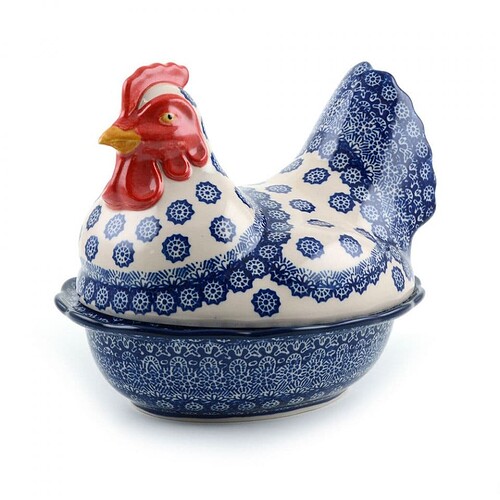It’s not necessary, but there’s a convenient place in the fridge with holes about the size of an egg…so convenience wins.
Why does washing them make a difference? Not that I do wash them, just curious.
Not as convenient as putting them on the countertop within arm’s reach from the hob! Plus, the first thing I did when I bought my fridge was to remove those useless space-hogging egg holders ![]()
It makes the shells porous and allows germs to get in I believe.
Washing eggs is common in the US.
That ruins the look of a clean countertop ![]()
We only have the machine to put CO2 in water and a Bialetti moka on the countertop, no more.
This is a cultural / hygiene difference.
In some countries, animal welfare standards aren’t amazing, so eggs are mass washed (sometimes in antiseptic solutions) to kill salmonella and other fecal-borne nasties.
The problem is, washing the eggs removes a permeable waxy coating that allows air-exchange, but does not allow fluids and other nasties in.
So, once washed, the eggs have a shorter shelf life, and must be refrigerated.
If you don’t wash them, they last longer (and can be stored outside the fridge); but you need to trust the farmer more that the chickens have straw/hay to lay eggs in, and that they don’t get laid in literal chicken sh!t and sit there until they are collected.
It’s also the reason that in the US you find eggs in the refrigerated section of the supermarket, while in most of the rest of the world they are pantry items.
Now a local “flavor” is boiled eggs…
When you buy the “picnic eier” - the eggs are dyed with a special dye, which closes the pores in the shell and prevents bacteria from entering… so those can be stored in the pantry, but if you home-boil eggs, that’s not the case so home-boiled eggs must be refridgerated.
Ideally, if not using with a few days, you should turn eggs regularly to keep them fresher and extend their storage life.
Do this by turning the whole carton upside down every few days.
Basically this stops the air-pocket with the egg from reaching the yolk, drying it out and causing the membrane within the shell of breaking away.
Eggs can last for months if you do this.
I can’t find the image now, but I was impressed by an old black and white photo of an egg storage facility which had massive cylinders for egg storage which slowly rotate.
Apparently, eggs can be kept good almost indefinitely through regular rotation.
wonder if after a while the eggs think this is the new AI mother and they should hatch.
Interesting, I never thought of that.
So far I only boil 2-3 eggs and consume them within a day. Still, I will consider this info from now on.
I’ve had eggs delivered by a local farmer for several years now. Every 2 weeks we get 40 eggs at CHF 5/10. I think the price goes up if you get fewer than 30 eggs. The eggs are nice and big and we use a lot of eggs.
Before the introduction of household fridges eggs were stored in ceramic containers filled with a mixture of water and Wasserglas (sodium silicate) . This method, broadly used in the 18th and 19th century, allowed storage for 6-12 months, allowing the transfer of the spring+summer oversupply to the cold period. This wasn’t particularly simple to implement and there was a considerable amount of eggs going to waste.
Storage like you describe would have been much simpler if the claim of very long storability were correct, but in that case the Wasserglas method wouldn’t have been useful (and not developed) in the first place. Put the other way, that claim is probably false.
In other news:
In-ovo sexing of the fertilised chicken eggs (determining the chicken’s sex) is being introduced nationwide this year in Switzerland. The method functions contactless, works with a combination of MRT and AI, and is used on day 11-12, which is before pain sensation develops. This way the male eggs can be sorted out and destroyed painlessly (so far the male chickens had to be killed after hatching, so far by gassing them with CO2).
The resulting cost is rolled over on the egg price, it amounts to 1-2 Rappen per egg.
Waterglass is calcium hydroxide, which allows botulin to form.
Sodium Silicate AKA waterglass, water glass, or liquid glass.
That’s lime, Löschkalk.
Yes, maybe the information was incorrect, or I mis-remembered.
It’s a high pressure cleaning as practised in the US, rinsing them under the tap is not a problem.
eggs can withstand high pressure cleaning??
Washes the shell right off!


